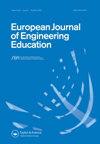STEM高等教育中女性中层管理学术领袖的角色认同
IF 2.8
Q2 EDUCATION & EDUCATIONAL RESEARCH
引用次数: 0
摘要
尽管STEM专业和高等教育领域的女性人数不断增加,但她们在中层管理领导角色中的代表性不足。在这些角色中,她们面临着平衡多重需求的挑战,尤其是在男性主导的文化中。本研究采用生活史的方法来调查卡塔尔大学的三位女性中层管理领导者的角色认同。角色认同的动态系统模型指导了半结构化访谈,参与者分享了他们的过去、现在和未来的故事。研究结果揭示了参与者形成领导身份的复杂方式,强调母亲关怀、信任和尊重等价值观。通过他们以目标为导向的自我认知,他们培养了同事的支持和积极的同伴。虽然缺乏正式的领导力培训,但他们依靠过去的经验和家庭支持来处理领导任务和生活责任。该研究建议为女性学术领袖提供更好的支持。本文章由计算机程序翻译,如有差异,请以英文原文为准。
The role identities of women middle management academic leaders in STEM higher education
Despite the increasing number of women in STEM professions and higher education, they are underrepresented in middle management leadership roles. In these roles, they face challenges balancing multiple demands, especially in male-dominated cultures. This research used a life history approach to investigate the role identities of three female middle management leaders in a Qatari university. The Dynamic Systems Model of Role Identity guided the semi-structured interviews where participants shared their past, present, and future stories. The findings revealed the intricate manner in which the participants formed their leadership identities, emphasizing values like motherly care, trust, and respect. Through their goal-oriented self-perception, they fostered collegial support and motivated peers. While formal leadership training was lacking, they leaned on past experiences and family support to handle leadership tasks and life responsibilities. The study recommends better support for women academic leaders.
求助全文
通过发布文献求助,成功后即可免费获取论文全文。
去求助
来源期刊

European Journal of Engineering Education
EDUCATION & EDUCATIONAL RESEARCH-
CiteScore
7.30
自引率
13.00%
发文量
64
期刊介绍:
European Journal of Engineering Education is published six times a year in print and electronic editions and provides an essential forum for dialogue between researchers and specialists in the field of engineering education, at European and worldwide levels. European Journal of Engineering Education is the Official Journal of SEFI, the Socièté Européenne pour la Formation des Ingénieurs (the European Society for Engineering Education). SEFI is a non-governmental organization whose aims are to develop information about engineering education, to improve communication and exchange between professors, researchers and students and to promote cooperation between the various institutions concerned with engineering education.
 求助内容:
求助内容: 应助结果提醒方式:
应助结果提醒方式:


